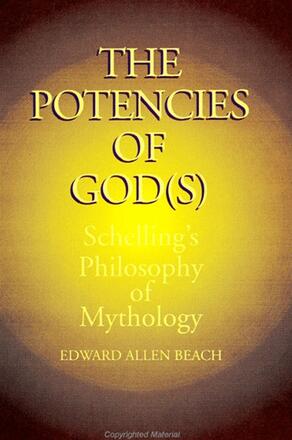
The Potencies of God(s)
Schelling's Philosophy of Mythology
Alternative formats available from:
Explores the metaphysical, epistemological, and hermeneutical theories of Schelling’s final system concerning the nature and meaning of religious mythology.
Description
This book explores the metaphysical, epistemological, and hermeneutical theories of Schelling's final system concerning the nature and meaning of religious mythology. This perspective is not surprising since Schelling regarded religion (not science or philosophy) as embodying the most complete manifestation of truth.
Beach examines Schelling's novel attempt to account for the changing historical forms of religion in terms of a complex theory of dynamic spiritual powers, or "potencies." He shows that these are not mere representations, ideas, or projected feelings created by ancient myth-makers for the benefit of a credulous populace. Instead, Beach demonstrates that these potencies should be seen as animate powers inhabiting the unconscious strata of a people's collective mind.
Edward Allen Beach is Assistant Professor of Philosophy and Religion at the University of Evansville, Indiana.
Reviews
"This is an interdisciplinary study, connecting philosophy and religion. Beach is at home in both domains of analysis and argument. He situates Schelling's endeavor in a clearly articulated matrix of systematic positions. Though he is rightly critical of Schelling's accomplishments,, both in terms of religion and philosophy, he manifests a good deal of sympathy for that thinker's project." — Michael G. Vater, Marquette University
"This book makes a significant contribution to the literature on Schelling. The insights into this period of his thought are fascinating. The emphasis on mythology is especially timely , in light of the re-awakened interest in mythology as appropriate subject matter for philosophical research. The author himself is quite clearly knowledgeable, learned, authoritative, and appropriately critical regarding the excesses and inadequacies of Schelling's thought, while remaining appreciative of the philosopher's independence and creative originality. The book will appeal to a wide audience of philosophers and historians of religion; it is clearly and competently written." — George R. Lucas, Jr., Clemson University